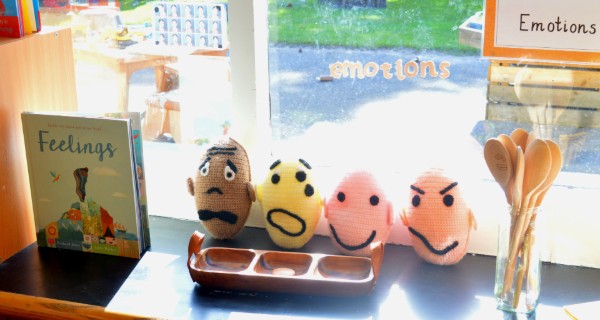Head of ESMS Junior School, Mike Kane, reflects on the start of term and helping children to manage their emotions as they transition into a new school year, in light of a recent visit from Dr Suzanne Zeedyk, development psychologist at the University of Dundee.
For many parents, one of the hardest times of the year is the start of a new term. Emotions run high as we wave our children off at the nursery door, then at the school door, hoping they will cope in their new surroundings. My children are older now, so in our house it’s the dog, abandoned by his summer playmates, who is the one most likely to be showing signs of anxiety. However, as a Headmaster, welcoming our new children into school, I am very conscious of the need to get those first few days right. So, when I was given the opportunity to spend some time with Dr Suzanne Zeedyk last month, I was keen to learn more.
Suzanne is a development psychologist at the University of Dundee, but she is perhaps better known as the author of Saber Tooth Tigers and Teddy Bears, a book about children’s anxieties and how we can recognise and support distress in our children, when it occurs.
During her visit Suzanne talked to us about how children feel when they have to say goodbye to their class teacher at the end of each year. She describes it as a form of bereavement. Some may find this description too strong but as a teacher I think the language is helpful in making us think about the impact on children as they move through school. If we have got it right and a teacher has built strong relationships with the children in their class, isn’t it only natural that the children should experience a sense of loss when they move on?
At ESMS we are putting a lot of energy into trying to make the school environment feel safe, friendly and personal for our children. We have just built a new sound-proofed dining room for the youngest members of the Junior School, which allows them to eat together around smaller tables, as you would at home. We have peer mediation, listening teams and Seasons for Growth programmes to add layers of support and advice.
But is all this enough? I am confident that we are good at spotting children who are showing signs of anxiety but after spending several hours with Suzanne I came to the conclusion that we can always do more to reduce the triggers children experience as they go through their school day. Suzanne talked about the importance of laughter and human touch as ways of reducing any anxiety. Welcoming children as they enter the classroom, shaking hands and wishing them a pleasant weekend at the end of the week all might seem rather traditional but perhaps some traditions are worth reviving.
I am open minded about how we tackle this issue, but a day spent with Suzanne has convinced me that those Saber Tooth Tigers need to be at the heart of our approach to pastoral care. Thank you, Suzanne, for your inspiring words. We will be working on developing those inner teddy bears, I promise.
Mike Kane
Headmaster
ESMS Junior School






